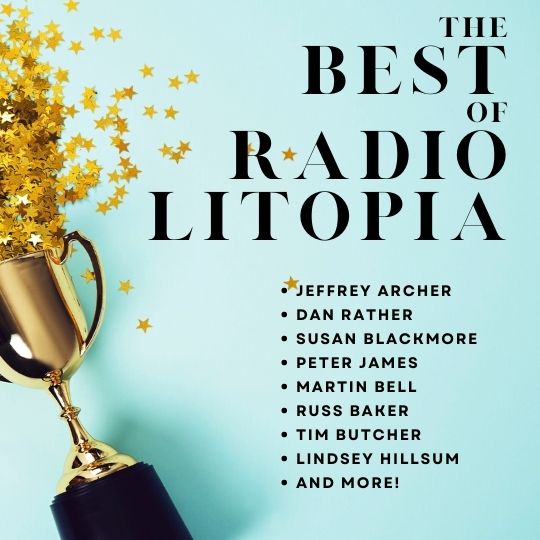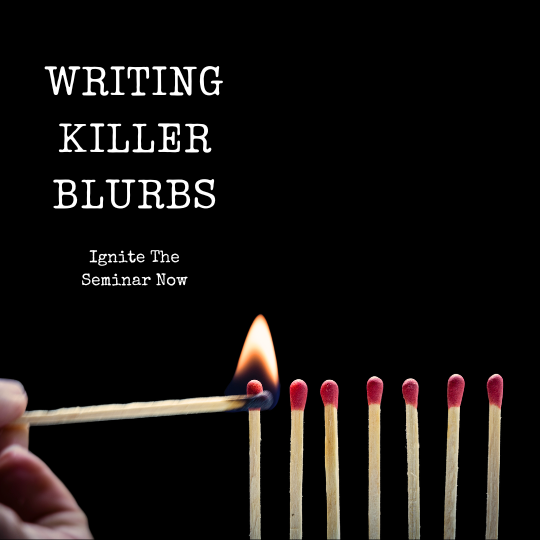Paul Whybrow
Full Member
I apologise to the ghost of Cole Porter for ripping off his song title, I Get A Kick Out Of You, as this thread is more about objectivity than a search for stimulation.
I've just begun writing my fifth novel The Dead Need Nobody, and while imagining a scene set in the art colony of Saint Ives, Cornwall, I had one of those peculiar writerly moments where I left my creative self to hover above the action to contemplate what details I should include to interest the reader. It's easy to miss the obvious, when I'm concentrating on establishing the relationship between characters, such as including the opportunistic seagulls notorious for stealing food from holidaymakers. Anyone who's visited Saint Ives would know about them. For a moment, I was the reader, though I felt a jolt as I returned to being the writer. Some things can only be judged in retrospect.
As part of a return to self-publishing in 2018, I recently re-edited my four Cornish Detective novels, which was an interesting experience. I'd already edited the manuscripts hundreds of times, so, thankfully there weren't too many errors, meaning I could read them more as stories rather than annoying challenges!
It's a common piece of advice to new writers, that they stick their novel in a drawer for a while, to reduce their emotional involvement with it. I hadn't read one of my stories for two years, so I went through it thinking things like that bit works, that passage would be improved by dropping the smart-arse adverb and this section is as chilling as I intended it to be—if I'm scaring myself, then surely I'll scare the reader. I'd forgotten some details, that I thought worked, but while congratulating myself, I wondered if a reader would like them. It's impossible to be completely objective.
The bottom drawer can become the literary equivalent of Davy Jones's Locker, the final resting place of manuscripts you're too afraid to expose to the cruel light of day. That's irrelevant, if you find fame as an author, for, after you die, your relatives will plunder your unknown work and make lots of money from it, (even though it might have been better left undiscovered). Some writers live on as a brand through their best-known characters, such as James Bond, Blade Runner and Sherlock Holmes, thanks to hired guns who perpetuate their stories. I sometimes imagine the deceased author contemplating the imitations with annoyance!
I've found that recording myself reading my writing helps me to decide if a story works, whether it flows, though, again, my voice is my voice, which I'm keenly aware of, so it becomes subjective. Getting an experienced audiobook narrator to read my novel would restore objectivity, though the fees they charge are eye-watering. One of my Cornish Detective novels, at 80,000+ words, would cost me $2,500 to have recorded as an audiobook—and that's by an anonymous professional narrator, not a Hollywood actor—imagine what Daniel Craig or Ian McKellen would charge!
Overall, the problem of being objective about your own writing is tricky.
I have three friends who've acted as readers for me. That they're friends potentially creates complications of loyalty, though I chose people not afraid to express their opinions and who are observant in different ways.
Of course, on the Colony, we can get a professional opinion from Agent Pete, as well as feedback from other members, but that doesn't help the challenge of stepping outside of yourself while writing and editing alone and assailed by doubts.
How do you approach the dilemma of being objective about what you've written?
Do you get a kick out of you?

I've just begun writing my fifth novel The Dead Need Nobody, and while imagining a scene set in the art colony of Saint Ives, Cornwall, I had one of those peculiar writerly moments where I left my creative self to hover above the action to contemplate what details I should include to interest the reader. It's easy to miss the obvious, when I'm concentrating on establishing the relationship between characters, such as including the opportunistic seagulls notorious for stealing food from holidaymakers. Anyone who's visited Saint Ives would know about them. For a moment, I was the reader, though I felt a jolt as I returned to being the writer. Some things can only be judged in retrospect.
As part of a return to self-publishing in 2018, I recently re-edited my four Cornish Detective novels, which was an interesting experience. I'd already edited the manuscripts hundreds of times, so, thankfully there weren't too many errors, meaning I could read them more as stories rather than annoying challenges!
It's a common piece of advice to new writers, that they stick their novel in a drawer for a while, to reduce their emotional involvement with it. I hadn't read one of my stories for two years, so I went through it thinking things like that bit works, that passage would be improved by dropping the smart-arse adverb and this section is as chilling as I intended it to be—if I'm scaring myself, then surely I'll scare the reader. I'd forgotten some details, that I thought worked, but while congratulating myself, I wondered if a reader would like them. It's impossible to be completely objective.
The bottom drawer can become the literary equivalent of Davy Jones's Locker, the final resting place of manuscripts you're too afraid to expose to the cruel light of day. That's irrelevant, if you find fame as an author, for, after you die, your relatives will plunder your unknown work and make lots of money from it, (even though it might have been better left undiscovered). Some writers live on as a brand through their best-known characters, such as James Bond, Blade Runner and Sherlock Holmes, thanks to hired guns who perpetuate their stories. I sometimes imagine the deceased author contemplating the imitations with annoyance!
I've found that recording myself reading my writing helps me to decide if a story works, whether it flows, though, again, my voice is my voice, which I'm keenly aware of, so it becomes subjective. Getting an experienced audiobook narrator to read my novel would restore objectivity, though the fees they charge are eye-watering. One of my Cornish Detective novels, at 80,000+ words, would cost me $2,500 to have recorded as an audiobook—and that's by an anonymous professional narrator, not a Hollywood actor—imagine what Daniel Craig or Ian McKellen would charge!
Overall, the problem of being objective about your own writing is tricky.
I have three friends who've acted as readers for me. That they're friends potentially creates complications of loyalty, though I chose people not afraid to express their opinions and who are observant in different ways.
Of course, on the Colony, we can get a professional opinion from Agent Pete, as well as feedback from other members, but that doesn't help the challenge of stepping outside of yourself while writing and editing alone and assailed by doubts.
How do you approach the dilemma of being objective about what you've written?
Do you get a kick out of you?





